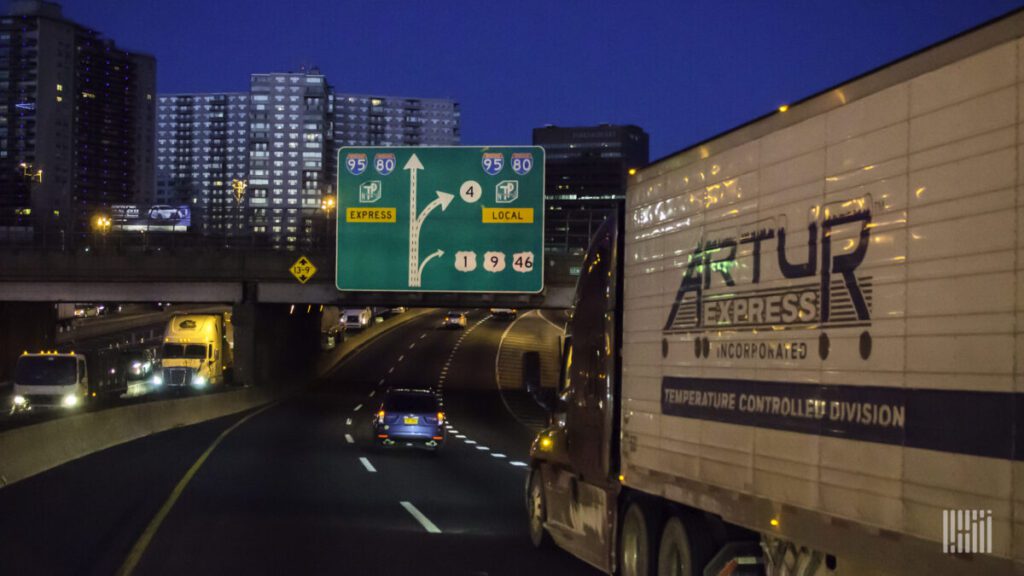New Jersey’s Insurance Requirement Increase: Recently, a law in New Jersey mandates that large commercial vehicles must now carry a minimum insurance coverage of $1.5 million, a significant increase from previous levels.
Legislative Journey: While the push for this change has been ongoing for several years, the final version of the bill received approval last month and was signed into law by Governor Phil Murphy on January 16.
Ambiguities Around Enforcement: Backers of the new law have refrained from providing detailed comments when approached by FreightWaves. Existing data on prior insurance requirements under New Jersey law vary, with some hazardous materials trucks reportedly needing $5 million in coverage. However, most sources indicate that the past requirements were significantly lower than the new $1.5 million mandate.
Understanding Applicability: This new insurance requirement will take effect for vehicles exceeding 26,000 pounds six months post-enactment. A trucking-focused law firm has highlighted that there’s no indication in the legislation suggesting that it applies exclusively to trucks operating within New Jersey.
Interstate Registration Complications: According to legal expert Greg Feary, the law’s wording seems to only address trucking companies registered in New Jersey, raising questions about its implications for vehicles registered in other states but partially operating in New Jersey through the International Registration Plan (IRP).
Impact on the Trucking Industry: Industry stakeholders have expressed concern that the new coverage requirement might compel some trucking firms to relocate their operations to states with less stringent insurance mandates. Furthermore, insurance costs could rise significantly as truckers adjust to the new liability standards.
Future Implications: With discussions underway regarding potential federal insurance minimum increases, the New Jersey law could foreshadow broader changes across the industry. As trucking companies assess the implications of these new requirements, their operational strategies might shift, leading to alterations in freight routes to avoid New Jersey.


